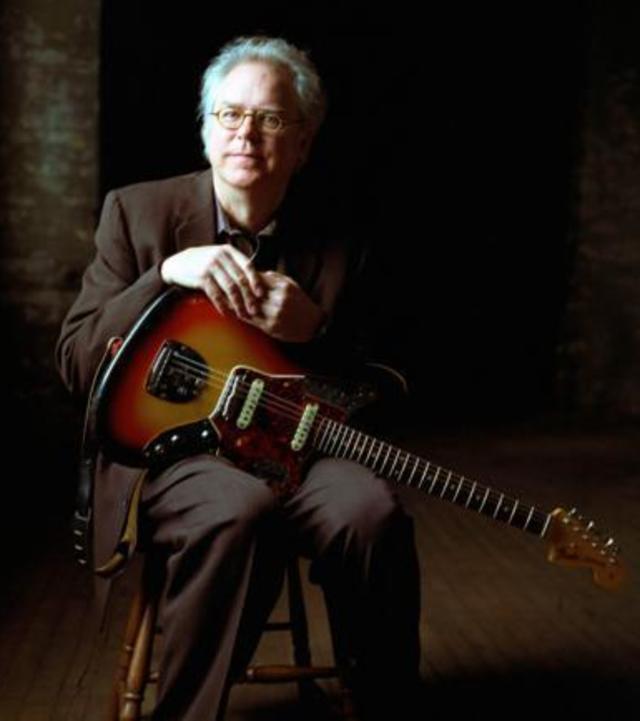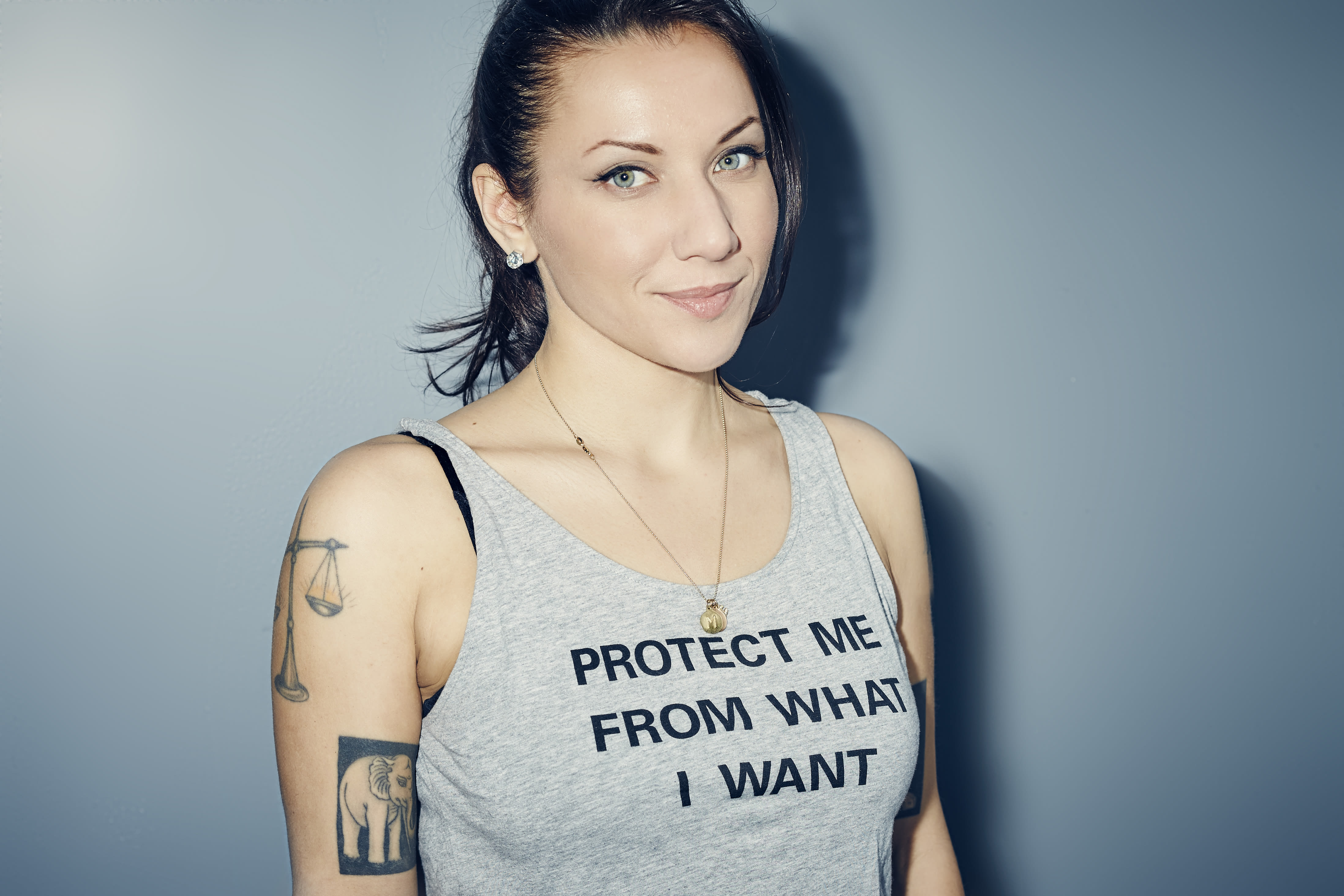Q&A: Bill Frisell

Image: Michael Wilson
Bill Frisell is hard to pin down. And I don’t just mean that it was difficult to get the globe-trotting guitarist on the phone, which it was. Rather, part of what makes Frisell one of the most sought-after players out there—over his four-decade-long career, he’s performed with everyone from legendary jazz drummer Paul Motian to pop icon Elvis Costello—is his ability to get inside a melody in any musical setting. It’s no surprise then to find out that the celebrated innovator isn’t a big fan of genre labels: at its best, his music essentially renders them pointless.
Frisell’s newest record, Big Sur, continues that trend. Originally composed as a commission for the Monterey Jazz Festival, the music is the result of ten days spent in isolation on Glen Davis Ranch, located in the iconic, pristine stretch of California’s Central Coast. It’s a spacious, patient collection of songs that are thoughtfully interpreted by a quintet featuring violin, viola, cello, and drums. The pacing and measured lyricism evident in the playing recall poet Robinson Jeffers’ reflections on the Central Coast more than the Beat musings that have emerged from that storied landscape.
Frisell and his Big Sur Quintet are currently touring the country in support of the album, and the group plays the Aladdin Theater on November 9. We caught Bill in the Denver airport to talk about the new record, his feelings on genre labels, and his history of collaborations.
Did it take some time to get a feel for Big Sur before the music started coming? Or did you start writing pretty quickly once you got there?
My whole entry into the place was so dramatic. I was driving up the road from Highway 1 in the pitch dark, driving through this mysterious looking fog. I couldn’t tell what was going on, and I was pretty worn out from traveling. I go to sleep, and wake up the next morning, and suddenly it was just this explosion of mind blowing stuff in front of me and all around me, up at the top of those bluffs up there. The music has somehow never been a problem for me—the problem is finding the time to let the music come out. As soon as I was there and by myself, it started coming right away.
I can imagine myself walking around Big Sur in pre-modern isolation to moments on the album like “Gather Good Things.” But “Highway 1,” on the other hand, sounds inspired by cruising through the place at the sort of relaxed pace only possible in a car. Were you thinking about these tensions in the way we experience the natural world in modern day America?
Well...I’m not sure about that. I just let the music come out. The reality is, I don’t know how much the music has to do with Big Sur itself, literally. It’s more like Big Sur gave me the chance to let stuff out that was inside of me. Then at the very end, when it’s all done and I’m listening, to get the titles, I sort of let the music remind me of where it came from, if that makes sense.
But would you say that the experience of being in seclusion, as opposed to the everyday experience of being almost inundated with data and other people all around you—did that influence the album?
For sure. I didn’t have computer or TV or telephone. I didn’t know what time it was. I didn’t care when I woke up or when I slept. All those barriers, structures, whatever they are—it just seems like every moment of our life is controlled by some kind of thing, and all that stuff went away. In a way, it didn’t matter if I came up with anything. There was no pressure. I got spoiled!
Did you feel any sort of connection to any other artists that have taken inspiration from the place, or used it as a space in which to be creative?
I was thinking about that. I was actually reading that Kerouac book, Big Sur. And I’d been to the Henry Miller Library before. And also—it’s not exactly Big Sur—but John Steinbeck. It wasn’t that long ago that I read East of Eden. When you’re actually breathing the same air where those stories came from—it’s pretty cool.
Your music gets the “Americana” tag a lot, which seems kind of limiting. Do you see yourself as bringing traditional American music together that always should have been considered in the same breath? I feel like anyone who’s listening closely can hear similarities between bluegrass and bebop, or country music and R&B.
For me, all that stuff is coming from the same place. That label, “Americana”—it always bothers me when people use the names to limit what people think the music is. In my imagination, the music is all happening simultaneously. Now when you say “Americana,” they’ll use it to market a certain, you know, if you have a cowboy hat or whatever. But I like to think that it’s more inclusive. To me, “Americana” is Louis Armstrong and Duke Ellington and [bluegrass pioneer] Bill Monroe and Elvis Presley—it’s everything, all together.
Bill Frisell
Nov 9 at 8
Aladdin Theater
Speaking of meaningless genre labels, you have an impressive record of collaborations with artists outside of the jazz world. Can you think of any of those collaborations that you look back on as having had a major impact on the direction your music has taken?
Oh wow. It’s hard to just pinpoint one thing. I’m 62 years old, and it just blows my mind to think of all the people I’ve gotten to play with. It’s just like a lesson, every time I get to play with anyone. There’s no eureka moment. That’s why those stupid “America’s Got Talent” shows or whatever drive me crazy: people talk about how they have “one chance” or the idea that everything is going to change because of one moment. Anyone who’s in music for that reason is seriously delusional: for me, music is just a constant way to be thinking.
I’m supposed to be some big shot, but deep inside, it feels exactly the way it did the first time I picked up the instrument. And so I think I learn something every time I play with anybody. I just try to soak up all I can.




